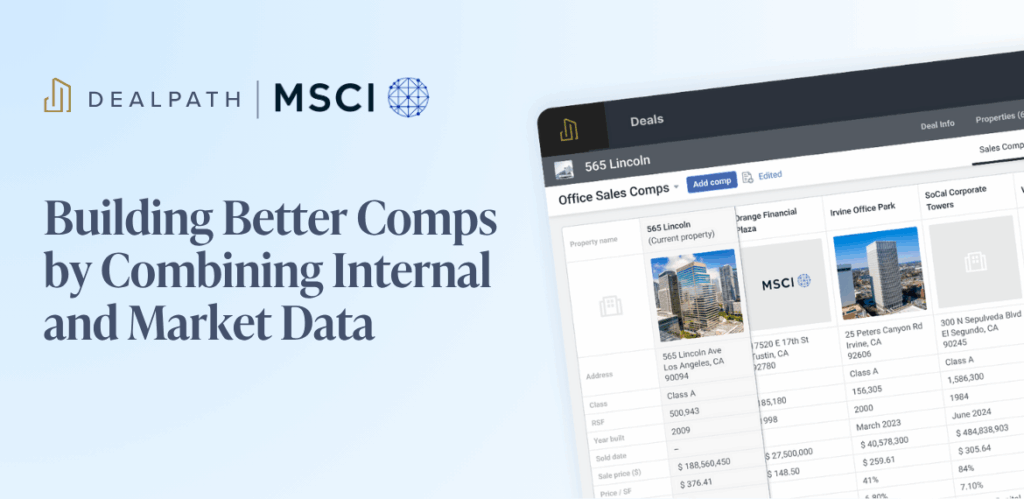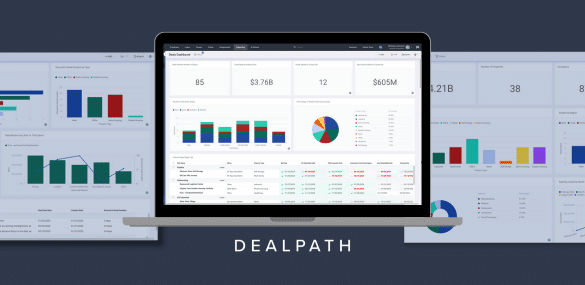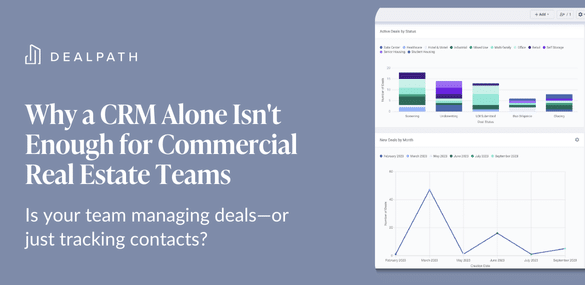Maintaining consistent, up-to-date and clear records and documentation on all deals–whether they’re in the pipeline, under review or closed–is paramount for confident and efficient execution. One document that plays a pivotal role in this process is the real estate deal sheet, providing a high-level overview of essential deal information. While this term commonly refers to the sheet a broker makes once an offer has been made, “deal sheet” might also mean an IC memo or another one pager.
Read on to learn more about what commercial real estate deal sheets are, and how to best preserve them for posterity.
What Is a Real Estate Deal Sheet?
Real estate deal sheets capture all of the most important deal information in one place. Typically, real estate deal sheets are created by brokers following an offer to provide attorneys on both sides of the transaction with relevant information. Because they precede any formal agreements, deal sheets are not legally binding.
In different contexts, though, real estate deal sheets can also refer to investment committee memos or other documents. Regardless of the intended audience or stage, real estate deal sheets enable investors to present a snapshot of the deal’s most important information, while archiving it for institutional record. In doing so, they ensure that both parties are acting on the same information, without any discrepancies that could delay the transaction at a later stage. These concise documents also give investors an easy way to communicate with third parties.
What Information Should Commercial Real Estate Deal Sheets Include?
The information that deal sheets include is largely dependent on the sheet’s specific purpose and audience.
Generally, deal sheets created by brokers for the buyer’s team should include:
- The price of the property, which can change or evolve during long negotiations
- The prospective closing date, providing clarity about when the transaction will be complete
- Any pertinent information about deal financing, including relevant funds and lenders
- Inclusions and exclusions, if there are any
- Contact information for any relevant parties
Naturally, an IC memo would also include an executive summary, comps, and other critical information that investors would look for. For this reason, deal sheets can also provide valuable data for real estate analytics.
What’s the Best Way to Create a Deal Sheet?
The best approach for creating deal sheets can vary, but hinges on how investors gather and store deal information. Without modern software to centralize deal data, creating a real estate deal sheet is confusing and time-consuming.
Brokers typically follow an internal real estate deal sheet template or example, drawing from communications about the property to insert relevant information. Investors, on the other hand, must track down information stored across spreadsheets to create IC memos–unless they have access to a centralized deal management platform.
Deal management software like Dealpath often provide an easier way to generate a real estate deal sheet or IC memo by standardizing and centralizing data. Relevant data is added to the deal as it progresses, rather than manually compiled at the last minute, allowing them to create deal sheets like IC memos quickly and efficiently. This is particularly helpful ahead of IC meetings, when last-minute updates from various team members might otherwise create conflicting information.
Best Practices: Storing Deal Sheets for Posterity
Archiving this information can become an obstacle in itself. The process involves countless documents, but their importance rarely fades after sharing them.
Without a better solution available, many firms follow the conventional practice of uploading deal sheets with other documents to local drives, or dedicated document storage platforms like Box. However, locating these documents when the time is right can be difficult.
Real estate investment software centralizes all relevant information, including documents. Whether the deal is three weeks, months or years old, investors can easily find archived documents readily available after one simple search.
5 Operational Inefficiencies That Slow Deal Flow (And How to Solve Them)
Access to deal information should be simple, but for many firms relying on pipeline tracking spreadsheets, this is a consistent challenge that delays decisions and, ultimately, stifles efficiency.
Learn how your firm can achieve tech-enabled growth and overcome CRE systems limitations by downloading our white paper.
Download White Paper


